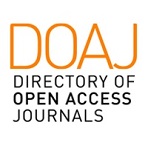Focus and Scope
RBP focuses on the specialties: Social dynamics, Sociometry and Sociatry, the latter being composed of the subspecialties: Group Psychotherapy, Sociodrama and Psychodrama. It also publishes articles on related sciences of interest for the psychodramatic community.
The RBP proposes to:
- Publish research that is representative of the entire research community, highlighting the growing diversity among researchers, enriching our ability to find solutions to research challenges and beyond;
- Increase publication of research that studies ethnic-racial relations, intersectional issues, and inequalities faced by vulnerable populations;
- Take care of related science themes of interest to the psycodramatic community.
The RBP is committed to equity in its practices aimed at expanding knowledge and improving the human condition. The RBP seeks to address systemic inequalities and biases, promote equal opportunity for authors, and promote an inclusive environment, representing the broad range of people that psychodrama consists of and serves.
Section editors are guided and motivated to: (1) Improve diversity in the choice of reviewers; (2) Encourage in their decisions that authors to adopt more inclusive citation practices; (3) Foster inclusive language.
The editors-in-chief, attentive to increasing diversity and recognizing the barriers that authors, editors, and reviewers belonging to minorities face in publishing, always seek to (1) Avoid discrepancies in the acceptance of articles, focusing on increasing the diversity of authors, reviewers, and editors ; (2) Mitigate both the risk and impact of biases in decision making during the review; (3) Identify alternative processes to mitigate biases; (4) Adopt standards for an inclusive culture.
RBP editorial policy is guided by double-blind peer review, ensuring the anonymity of authors and reviewers during the evaluation process. It follows the guidelines of the Committee on Publication Ethics (COPE) regarding the ethical aspects and cases of misconduct and plagiarism in academic publications.
RBP provides immediate open access to its content on the principle that making research freely available to the public supports a greater global exchange of knowledge.
The journal’s editorial committee is composed of researchers from several educational and research institutions. Currently, 11 % are from international institutions and, among the Brazilians, about 31 % are affiliated to institutions in the state of São Paulo and the other members are from other states.
To maximize the dissemination and use of the published material, the RBP adopts the Creative Commons Attribution CC BY 4.0 license. Thus, the copyrights will belong to the authors, allowed to distribute, remix, adapt and create from their work, even for commercial purposes, if they attributed the due credit.
RBP provides immediate open and free access to its content with no embargo, on the principle that making research freely available to the public supports a greater global exchange of knowledge.
The RBP does not charge fees for submission or processing of articles.
RBP is a signatory of the San Francisco Declaration on Research Assessment (DORA), not charging fees for submission or processing of articles.
RBP uses the PKP PN system to create a distributed file between participating libraries and allows them to create permanent journal files for preservation and restoration.
Editorial policies about storage and access to articles of RBP in institutional repositories are deposited in Diadorim (Directory of Editorial Policies of Brazilian Scientific Journals).
The RBP alows the author to deposit, with no embargo, all versions of their paper (preprint, accepted manuscript, final version) in institutional or subject repositories.
The classification of RBP in the QUALIS/CAPES system is B1.









1.jpg)




